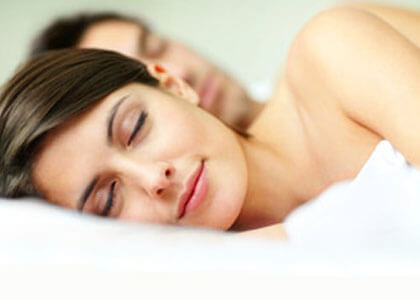How can a dentist help residents of Greenfield, IN manage a sleep disorder?
Few things can improve your mood, your health, and your mental function like a good night’s sleep. Sadly, for many people, getting a good night’s sleep can seem out of reach because of a sleep disorder. If you are a Greenfield, IN resident who has been experiencing certain problems with sleep, at Washington Street Dentistry, we might be able to help you.

Sleep Apnea
One of the most common and most ignored sleep disorders is obstructive sleep apnea. This condition is often overlooked since most people do not notice it while they are sleeping. Obstructive sleep apnea is an interruption in breathing during sleep that is the result of a blockage in the airway, usually by soft tissues in the throat. Whether you know you have sleep apnea or not, it can still negatively affect your quality of life in many ways, making diagnosis and treatment important. Some of the signs of sleep apnea include chronic drowsiness and fatigue, impaired concentration, irritable moods, dry or sore throat in the mornings, frequent morning headaches, and complaints from loved ones or roommates of loud snoring or sudden gasping sounds in the night.
If these symptoms sound familiar to you, you should see a doctor for a diagnosis to find out if you are suffering from obstructive sleep apnea. If you are diagnosed or have already been diagnosed with sleep apnea, you might want to visit your dentist to try the simplest treatment option first.
Treatment
Though many doctors may suggest CPAP treatment, which uses a machine to direct constant air pressure through your airway at night, a simpler treatment will work in many cases. Often, by keeping the jaw in the correct position throughout the night, the soft tissues in the back of the throat can be kept from blocking the airway. This can be accomplished with the use of a dental appliance that we can have made for you.
If you have a sleep disorder such as sleep apnea, try visiting our office to ask if an oral appliance could work to restore your normal sleeping habits.
Share this Article
Back to Sleep Apnea Page





